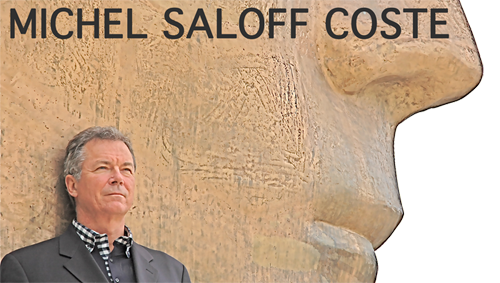China's 19th Communist Party Congress ended Tuesday, marking the start of a new era led by President Xi Jinping that was catalyzed, in part, by President Donald Trump, Shi Yinhong, a professor of international relations at Renmin University, told The New York Times. Trump's "negative attitude toward liberal world trade and climate change" encouraged Xi to take the reins of world leadership, Shi said.
China's state-run Xinhua news agency published a "news analysis" on Sunday underscoring Xi's assertion that "China has taken a driver's seat in international cooperation on climate change " and, using Xi's words, "become an 'important participant, contributor and torchbearer' in the global effort toward [an] ecological civilization." The piece quotes Avery Goldstein, a political science professor at the University of Pennsylvania as saying, "China, sticking with this path, makes it more likely that eventually even the United States will come back to the consensus on climate change."
As if to prove Xi's intention to benevolently guide the world to climate security, China's National Satellite Meteorological Center announced Tuesday that it would offer weather data from two satellites free of charge to anyone, anywhere in the world. "These two satellites represent the latest in scientific and technological innovation in China and the contribution China has made to meteorological disaster prevention and mitigation globally, as well as climate change response...," Yang Jun, the center's director general was quoted as saying by Xinhua.
China also intends to lead the world in manufacturing "environmental protection equipment," the China Daily reported on Thursday. The country's output of products to monitor, treat and prevent air, water and soil pollution doubled since 2011 to $93 billion in 2016, heading toward a goal of $150 billion by 2020, the Ministry of Industry and Information Technology said.
While it won't be easy, China will meet its air quality goals by 2035, environment protection minister Li Ganjie told reporters on the sidelines of the Communist Party Congress. "We are fully aware of the problems we are facing," Li said. "Coal accounts for a high proportion of the overall energy mix. We have too many commodities transported by trucks. Some companies avoid emission control measures. Some local governments are not enforcing measures from the central government." However, Li insisted, "by 2035 there will be a fundamental improvement in the environment, and [President Xi's stated] goal of building a 'beautiful China' will basically be attained." He gave the congress a more dire assessment. "Only 84 cities out of 338 meet environmental targets, and pollution is worsening in the worst-polluted places," he said, according to Reuters. "Structurally, heavy industry still makes up far too large a proportion of output. There is also an overly heavy reliance on the burning of coal and on road transportation. Some enterprises don't have a law-abiding attitude, and there is widespread flouting of legislation."
China eliminated 2,802 coal "enterprises" during the past five years, with another 1,000 coal "mines" slated for closure this year, Xinhua reported on Wednesday, citing data from the China National Coal Association. "Measures to fight pollution don't have a big impact on economic growth," Zhang Yong, vice chairman of the National Development and Reform Commission, had said on Saturday. "Measures to treat pollution have a positive impact on economic development in the long term." But some parts of the country are struggling to replace coal with equally lucrative economic endeavors, The New York Times reported. "So far, the central government has been really good about making promises and commitments but then passing the buck onto local governments," said Bruce Dickson, a professor at The George Washington University.
Paul H Ray
Paul H Ray

Aucun commentaire:
Enregistrer un commentaire